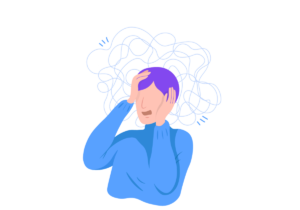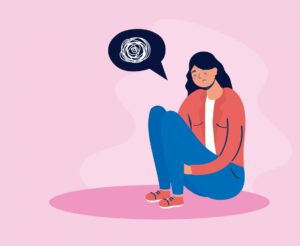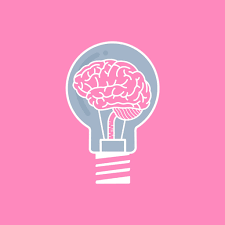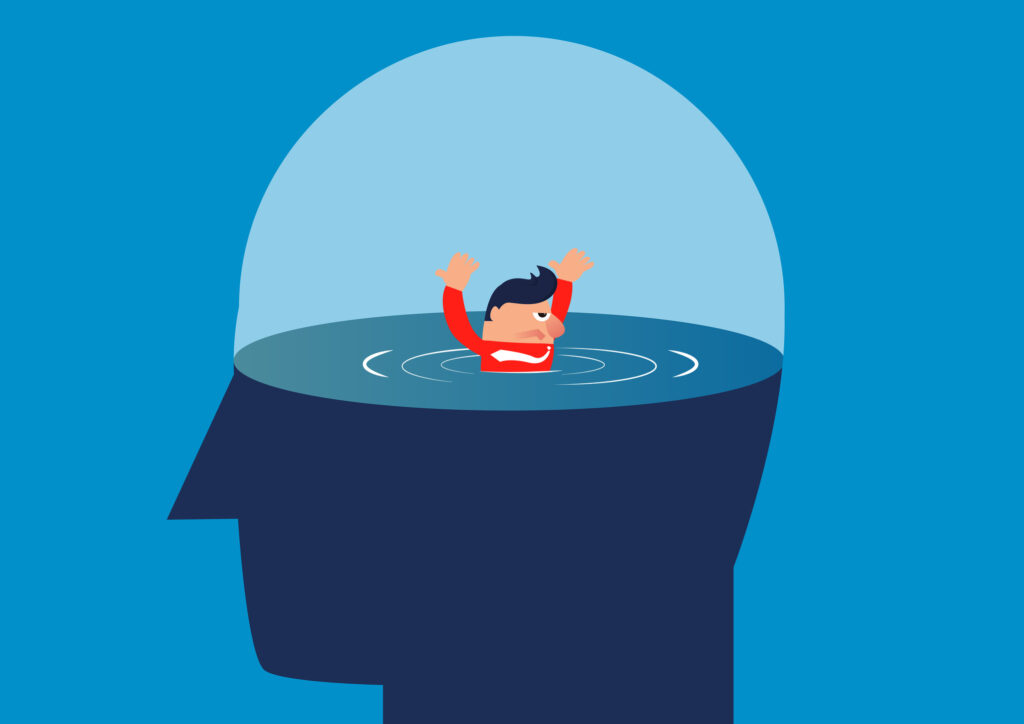Do you sometimes feel like you’re about to have a heart attack? If so, you may be experiencing a panic attack. Panic attacks can be extremely scary and debilitating, but fortunately, there are ways to cope with them. In this blog post, we will discuss the most common causes of panic attacks and how to deal with them. We hope that this information will help you manage your panic attacks and live a healthier life!
Contents
- 1 What Are Panic Attacks?
- 2 Causes of Panic Attacks
- 2.1 Family history of panic attacks or anxiety disorders
- 2.2 History of trauma or abuse
- 2.3 Stressful life events
- 2.4 Brain chemistry
- 2.5 Medical conditions
- 2.6 Substance abuse
- 2.7 Withdrawal from certain medications
- 2.8 Caffeine intake
- 2.9 Sugar intake
- 2.10 Sleep deprivation
- 2.11 Pregnancy and postpartum hormonal changes
- 2.12 Certain personality traits
- 2.13 Nutritional deficiencies
- 2.14 Dehydration
- 2.15 Panic disorder
- 2.16 Exposure to environmental toxins
- 2.17 Other mental disorders
- 3 Recognizing The Signs Of A Panic Attack
- 4 Coping With Panic Attacks
- 5 Conclusion
What Are Panic Attacks?
A panic attack is a sudden episode of intense fear or anxiety that can cause physical symptoms, such as a racing heart, shortness of breath, and dizziness. Panic attacks are often triggered by stressful situations, such as public speaking or flying on an airplane. However, they can also occur without any obvious trigger.
Panic attacks usually last for a few minutes, but the feeling of terror and dread can last much longer. Many people experience recurrent panic attacks, which can lead to a diagnosis of panic disorder. Panic disorder is a type of anxiety disorder that is characterized by recurring and unexpected panic attacks.
Causes of Panic Attacks

There are many different factors that can contribute to the development of panic disorders and panic attacks. The 11 most common causes include:
Family history of panic attacks or anxiety disorders
If you have a family member who suffers from panic attacks or anxiety disorders, you are more likely to experience them yourself. This is because there is a genetic component to these conditions. Though experts aren’t sure exactly how panic disorder is passed down, it is clear that it can be inherited.
History of trauma or abuse
Traumatic events, such as car accidents or childhood abuse, can increase the risk of developing panic disorder. This is because trauma can lead to changes in the brain that make it more difficult to cope with stress. Trauma also results in feelings of fear, helplessness, and anxiety, which contribute to the occurrence of panic attacks. This also happens because these events can be stressful enough that they cause changes in the brain that make it difficult to cope with stress.
Stressful life events
Certain life transitions can trigger panic attacks. This is because these events can be stressful and cause changes in routine, which can be difficult for the mind and body to adjust to. It’s not surprising, then, that major life events like getting married, having a baby, or starting a new job are common triggers for panic attacks.
Brain chemistry
Changes in brain chemistry, such as imbalances in neurotransmitters, can contribute to the development of the panic disorder. Some neurotransmitters responsible for regulating moods, such as serotonin and norepinephrine, are particularly important in the development of panic attacks.
Medical conditions
Certain medical conditions can also lead to changes in brain chemistry that can trigger panic attacks. These include thyroid problems, heart disease, and respiratory disorders. In addition, some medications used to treat these conditions can cause side effects that mimic the symptoms of a panic attack. Health crises can be stressful and cause changes in the body that make it difficult to cope with stress.
Substance abuse
People who abuse drugs or alcohol are more likely to experience panic attacks. This is because substance abuse can lead to changes in the brain that make it difficult to cope with stress.
Withdrawal from certain medications
Some medications, such as beta-blockers and antidepressants, can cause withdrawal symptoms that may trigger a panic attack. This is because these medications can change the levels of certain neurotransmitters in the brain, which can lead to feelings of anxiety and panic.
Caffeine intake
Drinking too much caffeine can lead to anxiety and panic attacks. Since it is a stimulant that can increase anxiety and trigger panic attacks, it speeds up the nervous system and raises blood pressure and heart rate. Caffeine is found in coffee, tea, energy drinks, chocolate, and some medication.
Sugar intake
Eating too much sugar can also trigger anxiety and panic attacks. This is because sugar can cause blood sugar fluctuations that can lead to feelings of anxiety and dizziness. It also increases the risk of developing type II diabetes, which has been linked to panic attacks.
Sleep deprivation
Not getting enough sleep can also trigger panic attacks. This is because sleep deprivation can lead to changes in brain chemistry and increased stress levels. It can also cause irritability and mood swings, which can contribute to the development of panic attacks. It can also be your body’s way of releasing tension and exhaustion.
Pregnancy and postpartum hormonal changes
The hormonal changes that occur during pregnancy and after childbirth can trigger panic attacks. This is because these hormones can cause changes in the brain that make it difficult to cope with stress. It also happens because pregnancy and postpartum can be stressful life events that can lead to changes in routine, which can be difficult for the mind and body to adjust to.
Certain personality traits

People with certain personality traits, such as perfectionism or neuroticism, are more likely to experience panic attacks. This is because these personality traits can lead to increased stress levels and difficulty coping with stress. At times, these traits may take over an individual’s ability to function normally and may cause a frenzy.
Nutritional deficiencies
Certain nutritional deficiencies, such as low levels of magnesium, can trigger panic attacks. This is because these deficiencies can cause changes in the brain that make it difficult to cope with stress. Some nutrients whose deficiency causes panic attacks are: omega-three fatty acids, vitamin B12, calcium, and magnesium.
Dehydration
Dehydration can also trigger panic attacks. This is because it can cause changes in the brain that make it difficult to cope with stress. Dehydration can also cause dizziness and lightheadedness, which can contribute to the development of panic attacks.
Panic disorder
People with panic disorder are more likely to experience panic attacks. This is because the condition can cause changes in the brain that make it difficult to cope with stress. Panic disorder is a condition characterized by recurrent episodes of anxiety and panic attacks.
Exposure to environmental toxins
This can include exposure to pesticides, lead, and other toxins. These toxins can cause changes in the brain that make it difficult to cope with stress. They may react with the body’s internal system and cause reactions, which can further cause panic attacks.
Other mental disorders
People with other mental disorders, such as depression or bipolar disorder, are more likely to experience panic attacks. This is because these disorders can be so stressful that they cause changes in the brain that make it difficult to cope with stress.
An individual’s cause of panic attacks can be either one or a combination of any of the above factors.
Recognizing The Signs Of A Panic Attack

Now that we know some of the primary causes of panic attacks, we will now understand how to recognize the signs of a panic attack. If you observe these signs in yourself or see someone going through them, it might be an indication of a panic attack. Some of the most common tell-all signs of a panic attack include:
- Heart palpitations
- Sweating
- Trembling or shaking
- Shortness of breath
- Feeling of choking
- Chest pain
- Nausea or abdominal pain
- Feelings of unreality or derealization
- Dizziness or lightheadedness
- Feelings of unreality or derealization
- Fear of losing control or going crazy
- Fear of dying
If you are experiencing any of these symptoms, it is important to seek help. Panic attacks can be very debilitating and can interfere with your ability to live a normal life. It is important to be able to recognize the signs of a panic attack so that you can seek treatment if necessary.
Coping With Panic Attacks

While there is no specific or permanent cure for panic attacks, there is help available. This can either be through the intervention of a mental health professional, who may use therapy, prescription medicines, or a combination of both. In addition, there is a huge variety of self-help strategies that can help you manage your symptoms and attacks.
Professional Help
If you are struggling to cope with panic attacks, it is important to seek professional help. There are many treatment options available that can help you manage your symptoms and live a normal life.
Psychotherapy
One of the most effective treatments for panic attacks is psychotherapy. This type of therapy can help you understand your condition and develop coping mechanisms to deal with your symptoms.
Cognitive-behavioral therapy
This is a type of therapy that can help you change the way you think about anxiety and panic attacks. This can be very helpful in reducing the frequency and intensity of your symptoms.
This is a type of therapy that involves gradually exposing yourself to the things that trigger your panic attacks. This can help you learn to cope with your symptoms and eventually reduce the frequency of your attacks.
Medication
There are also several types of medication that can be used to treat panic attacks. The most common type of medication is antidepressants. Antidepressants can help to stabilize mood and reduce anxiety. Beta-blockers are another type of medication that can be used to treat heart palpitations and other physical symptoms of panic attacks. These include anti-anxiety medications, antidepressants, and beta-blockers. Your doctor will work with you to find the best medication for your situation.
There are also many support groups available for people with panic disorder. This can be a great way to meet other people who are dealing with similar issues. It can also help you learn more about the condition and how to cope with it.
Self Help Tips
If you suffer from panic attacks, there are many things that you can do to cope with them. Here are some tips:
- Learn about panic disorder and how to manage it: This can help you understand your condition and find ways to cope with it.
- Breathe deeply: Deep breathing can help to slow down your heart rate and ease the physical symptoms of a panic attack. This will also help to calm your mind.
- Use positive self-talk: This can help you to re-frame your thoughts and focus on positive things. This can be very helpful in reducing anxiety.
- Identify your triggers: If you can identify what triggers your panic attacks, you can try to avoid those situations.
- 5-4-3-2-1 technique: This is the most effective grounding exercise which is effective for panic attack relief. This involves the use of your primary sense organs. For this, an individual has to
5 things you can see
4 things you can touch
3 things you can hear
2 things you can smell
1 thing you can taste
This helps in grounding your senses and calm you down.
- Exercise: Exercise is a great way to reduce stress and improve your overall mental health. It can also help to prevent panic attacks.
- Find a distraction: If you feel a panic attack coming on, try to find something to distract yourself. This can help to take your mind off of the fear and anxiety. This can include listening to music, reading a book, practicing visualization, or indulging your primary senses.
- Eat a healthy diet and get enough sleep: Eating a healthy diet and getting enough sleep can help to reduce stress and improve your overall mental health.
- Talk to someone: Talking to someone about your panic attacks can help you understand your condition and find ways to cope with it. There are many support groups available for people with panic disorder. This can be a great way to meet other people who are dealing with similar issues.
With the right combination of treatment and management, one can very effectively learn how to navigate panic attacks and lead a quality life. It is important to remember that while there are many causes of panic attacks, they are also very treatable. If you or someone you know is struggling with panic attacks, don’t hesitate to reach out for help. There are many resources available to help you cope with this condition.
Conclusion
Panic attacks can be very debilitating and interfere with your ability to live a normal life. However, there are many treatment options available that can help you manage your symptoms and live a normal life. If you are struggling to cope with panic attacks, it is important to map out the causes of panic attacks, and further seek help for them. This can be a great way to meet other people who are dealing with similar issues. It can also help you learn more about the condition and how to cope with it. With the right combination of treatment and management, one can very effectively learn how to navigate with panic attacks and lead a quality life.
For more information, please contact MantraCare. Anxiety is a common mental health condition characterized by persistent feelings of worry, fear, and apprehension. If you have any queries regarding Online Anxiety Counseling experienced therapists at MantraCare can help: Book a trial Anxiety therapy session


